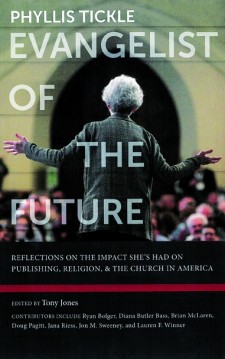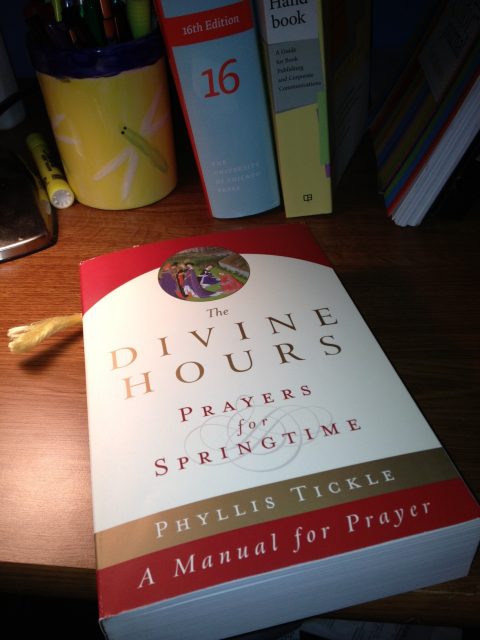Phyllis Tickle is eighty years old today! I could share lots of stories about her—how she mentored me during my years at Publishers Weekly, how her sense of humor sparkles, how she can light up a crowd. And today the blogging world is abuzz with bite-sized festschriften of such stories from Nadia Bolz-Weber, Tony Jones, Sybil MacBeth, Tony Campolo and others. (To add to the love, post your birthday wishes on Phyllis’s Facebook page.)
But what I’m thinking about today is how Phyllis has changed—is changing—prayer in America. I just turned in the manuscript for Flunking Sainthood Every Day: A Devotional for the Rest of Us, which offers quotes and reflections about the twelve spiritual practices I tried for Flunking Sainthood. The November chapter on fixed-hour prayer has thirty quotations, and I had to work to obtain some diversity so that these weren’t all from books by Phyllis or people directly influenced by her.
Variety was a tall order, because Phyllis has shaped almost all the contemporary writers I quote in that chapter—Scot McKnight, Lauren Winner, Robert Benson, Cindy Crosby, Philip Yancey. She has almost single-handedly translated the practice of fixed-hour prayer for a new generation of people, not just Catholics and Episcopalians but evangelicals and even Mormons. (Yes, there are a few of us who pray the hours, or at least try to.)
In economics, the trickle-down theory holds that the wealth of the few will eventually find its way to the masses. The Tickle-down theory states that the riches of one extraordinary liturgical prayer practice can be enjoyed by any layperson, regardless of denomination.
 It’s not just that individuals can transform their own lives by praying the Psalms; it’s that the divisions between individuals and groups tend to erode as the church universal comes together at fixed intervals throughout the day. As Lauren writes in a new collection of essays in Phyllis’s honor (on sale all weekend from Paraclete Press):
It’s not just that individuals can transform their own lives by praying the Psalms; it’s that the divisions between individuals and groups tend to erode as the church universal comes together at fixed intervals throughout the day. As Lauren writes in a new collection of essays in Phyllis’s honor (on sale all weekend from Paraclete Press):
To pray the Daily Office is to be connected to people all around the world praying the same prayers. It is to connect yourself across time to those who have prayed these prayers before and those who will pray them after. . . .
To say that praying the hours, praying the psalms, will forge bonds between you and other praying people is not just a trope, a will-of-the-wisp. Another word for those bonds is “solidarity.”
Happy birthday, Phyllis Tickle. Thanks for changing lives.







